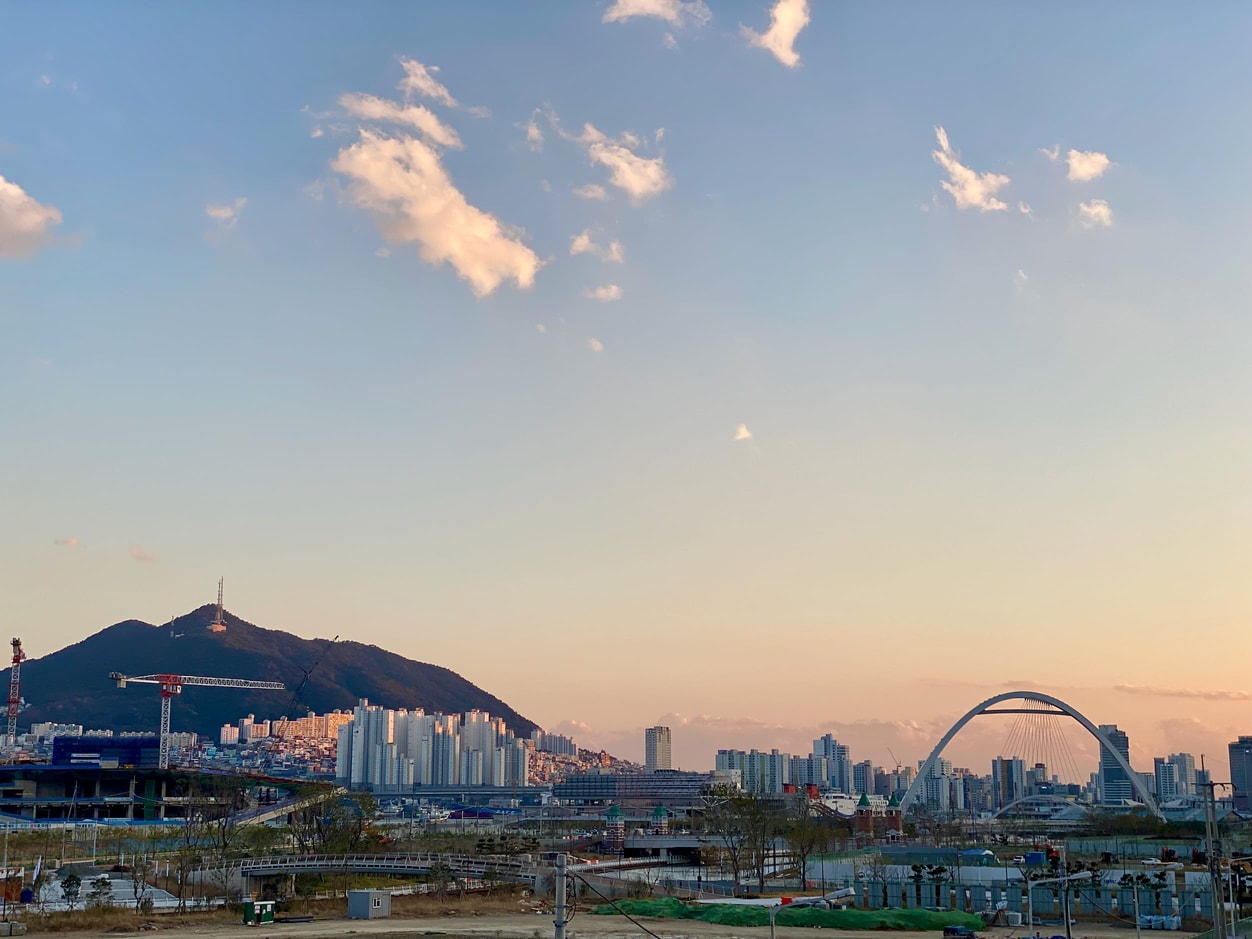Korea
Busan
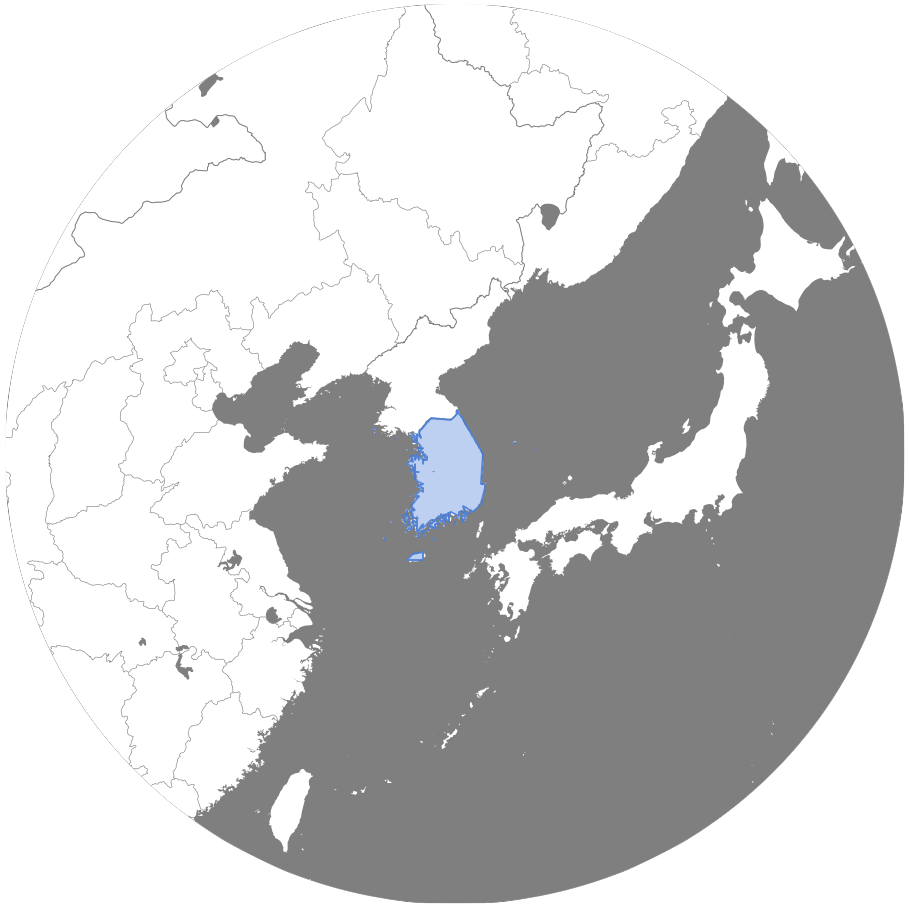
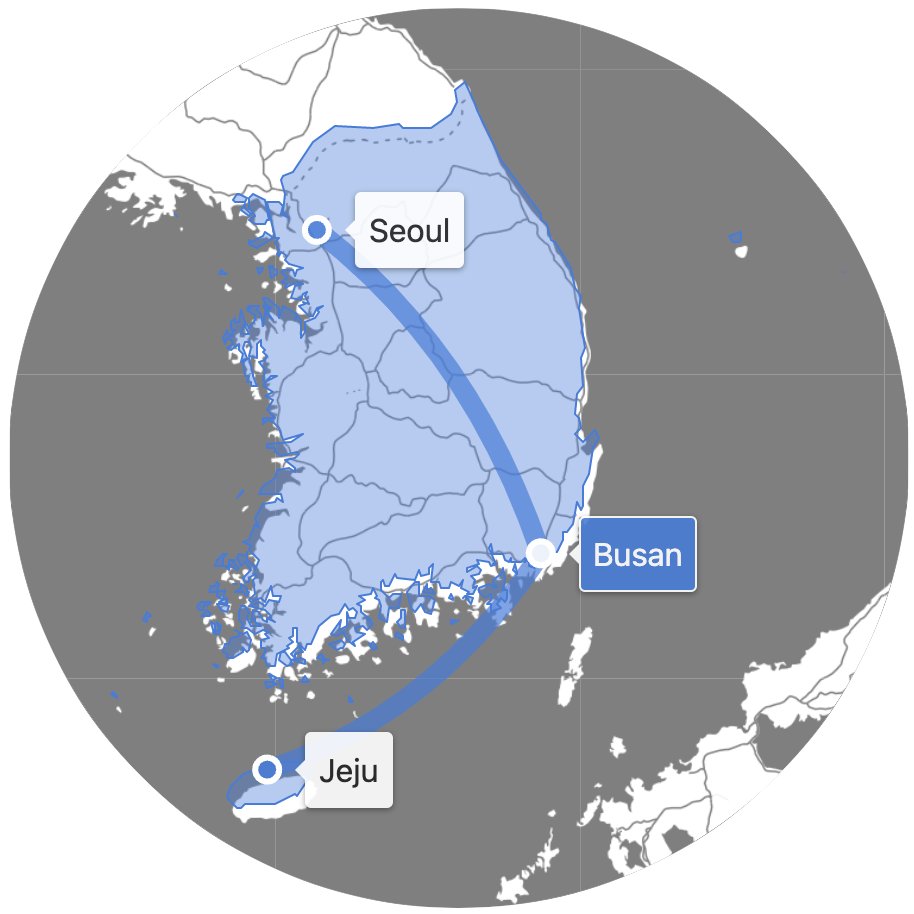
Train to (B/P)usan
Of course, we also watched Train to Busan (dir. Yeon Sang-ho, 2016).
One thing you notice in Train to Busan is that in Korean, the city sounds much closer to “Pusan.” Way more than “Busan.” And when they write it out in Japanese, they also spell it プサン (Pusan). What gives?
Surprisingly, Busan used to be written as Pusan. The Korean government switched the way it romanizes Korean (i.e., writes it in the Latin script) in 2000. The old way used apostrophes (kʼ) and breves (ŏ), which people found annoying because they’re hard to type. So they had linguists come up with a new system, and then replaced all the signs in the whole country.01
Apparently,02 Koreans prefer the new system. And, of course, it’s their language, not mine.
But I found myself continuously baffled why the designers of this new system would flip so many Bs and Ps (Busan sounds more like Pusan), and Gs and Ks (Gangnam sounds more like Kangnam).
The root of the problem is that the task is, in a sense, impossible. Linguistically, you’re losing information. If Korean has, for example, several vowels that sound kind of like “o,” but you write them all as “o,” then someone reading them without knowledge of Korean won’t say them right.03 Another similar issue is when there isn’t a perfect letter to choose. We see this with the p/b and g/k issue—I suspect the true pronunciation is somewhere in the middle.04
With all that said, I think they’ve made a choice that, to me, makes English-reading foreigners say a bunch of words more wrong (Busan) than if they’d made the opposite choice (Pusan).
A counterpoint to my own argument is that it doesn’t matter which sounds better to me, it matters which sounds better to Koreans. And at least one source says this new way is the better one:
In the year 2000, Korea changed Pusan to Busan (부산) because Pusan (푸산) sounds awful to Korean ears… When Pusan became Busan, I said to myself, “Finally, somebody has the sense to make it sound right.”
This still doesn’t explain why they kept the Japanese spelling as プサン (Pusan), though. Maybe the Japanese government gets to decide that one?
Busan
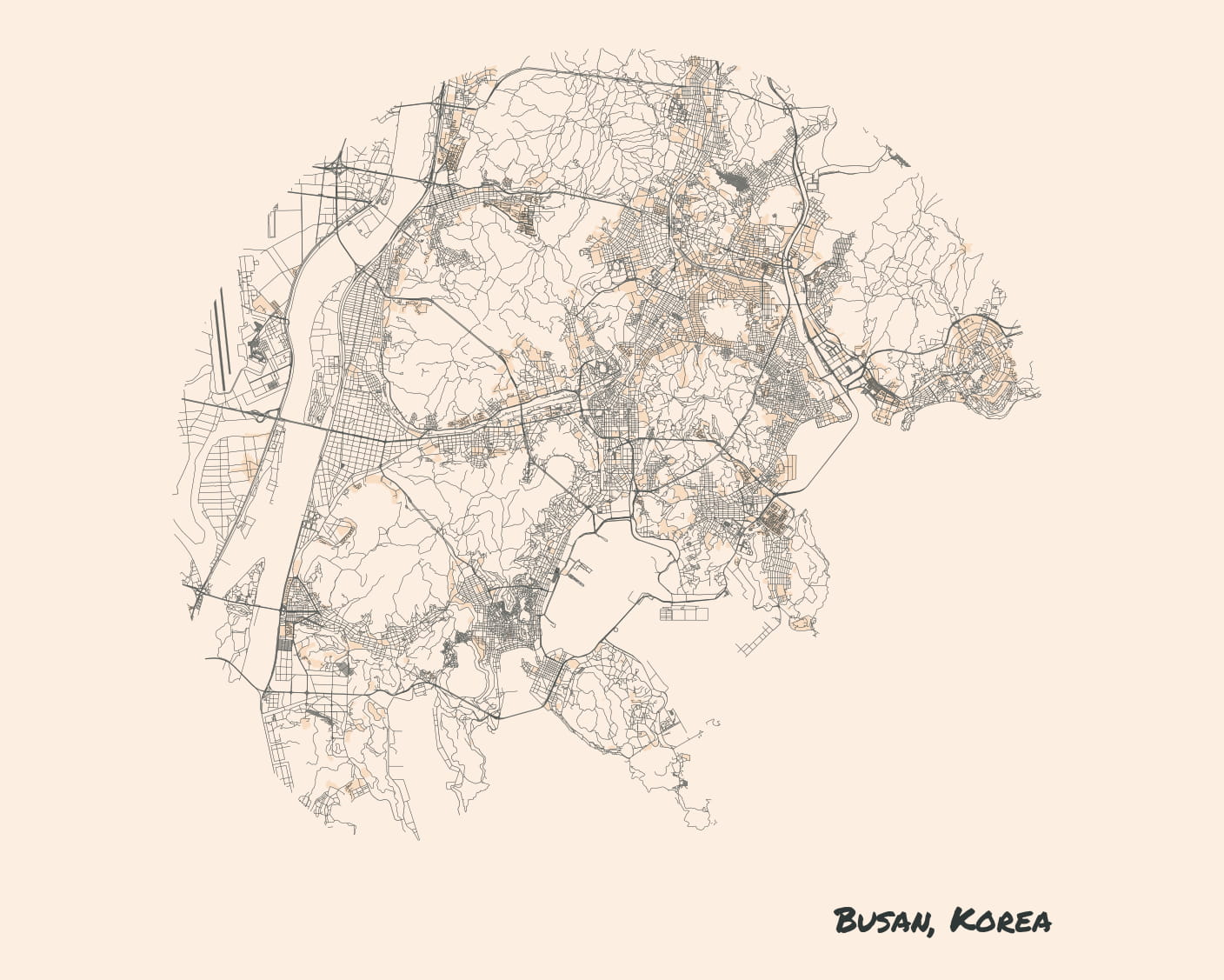
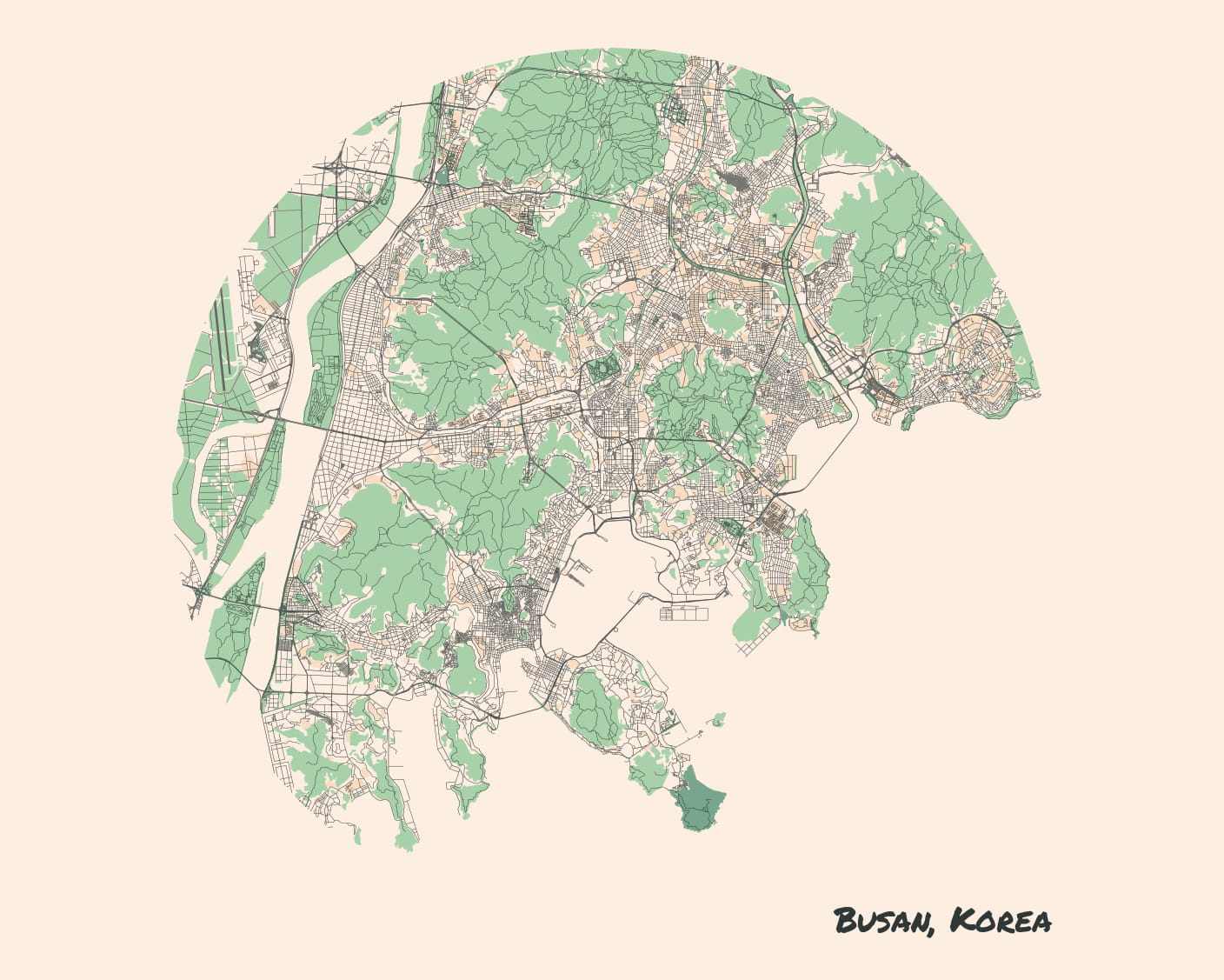
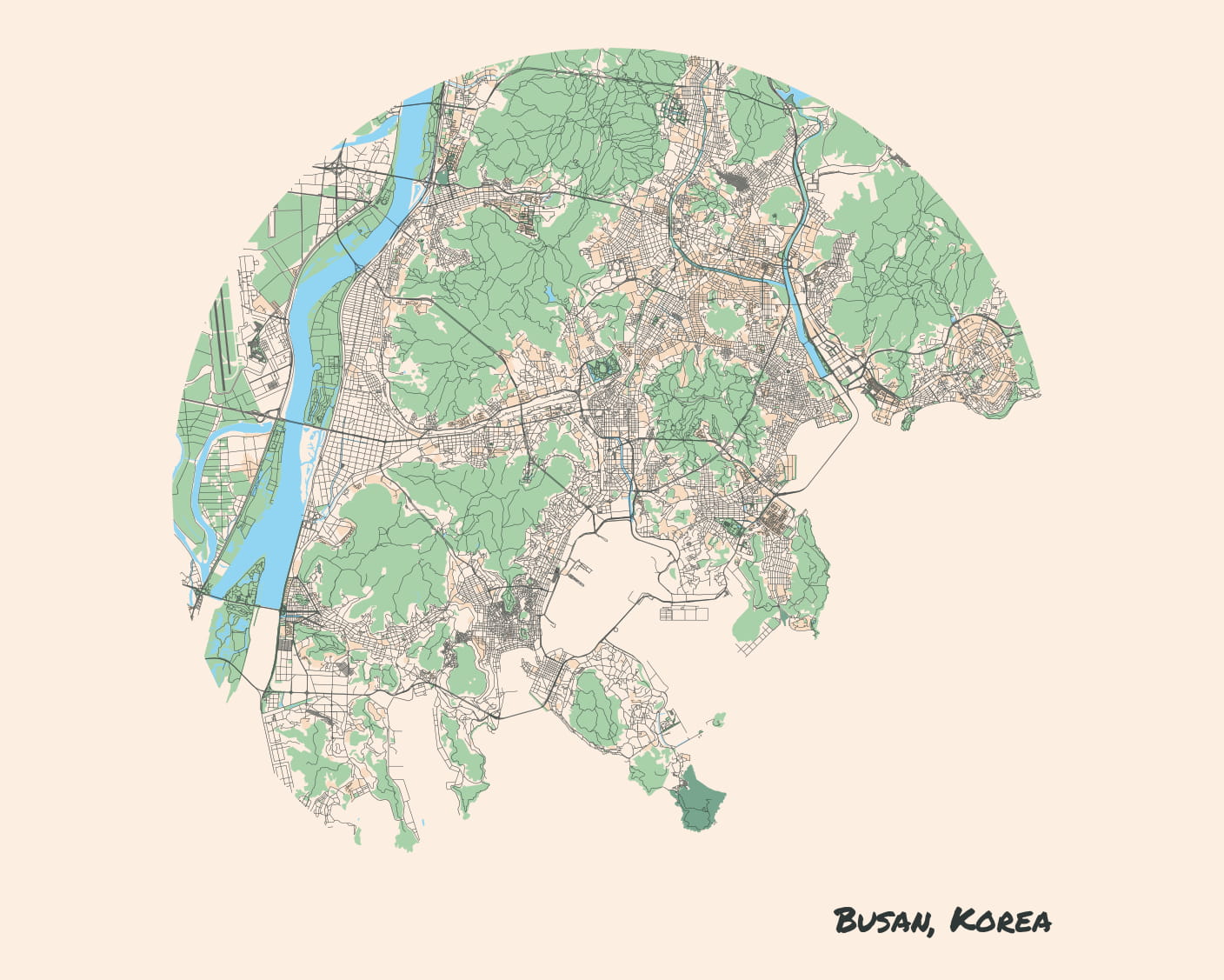
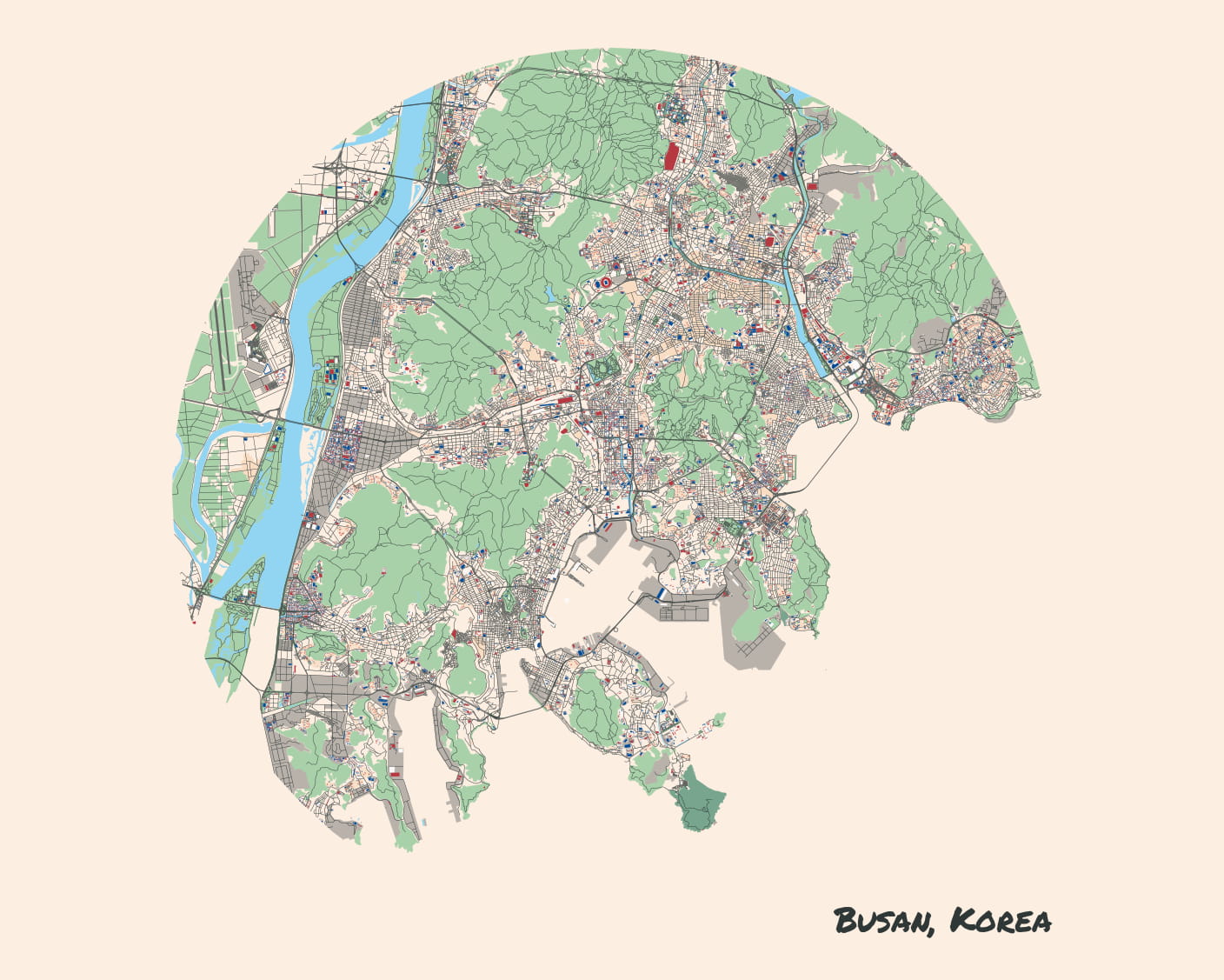
Busan felt like if you turned the development clock on Seoul back about twenty years. Towers spring up more erratically. Bush-lined gravel walkways take the place of manicured parks. And you can still see the sky while wandering commercial strips.

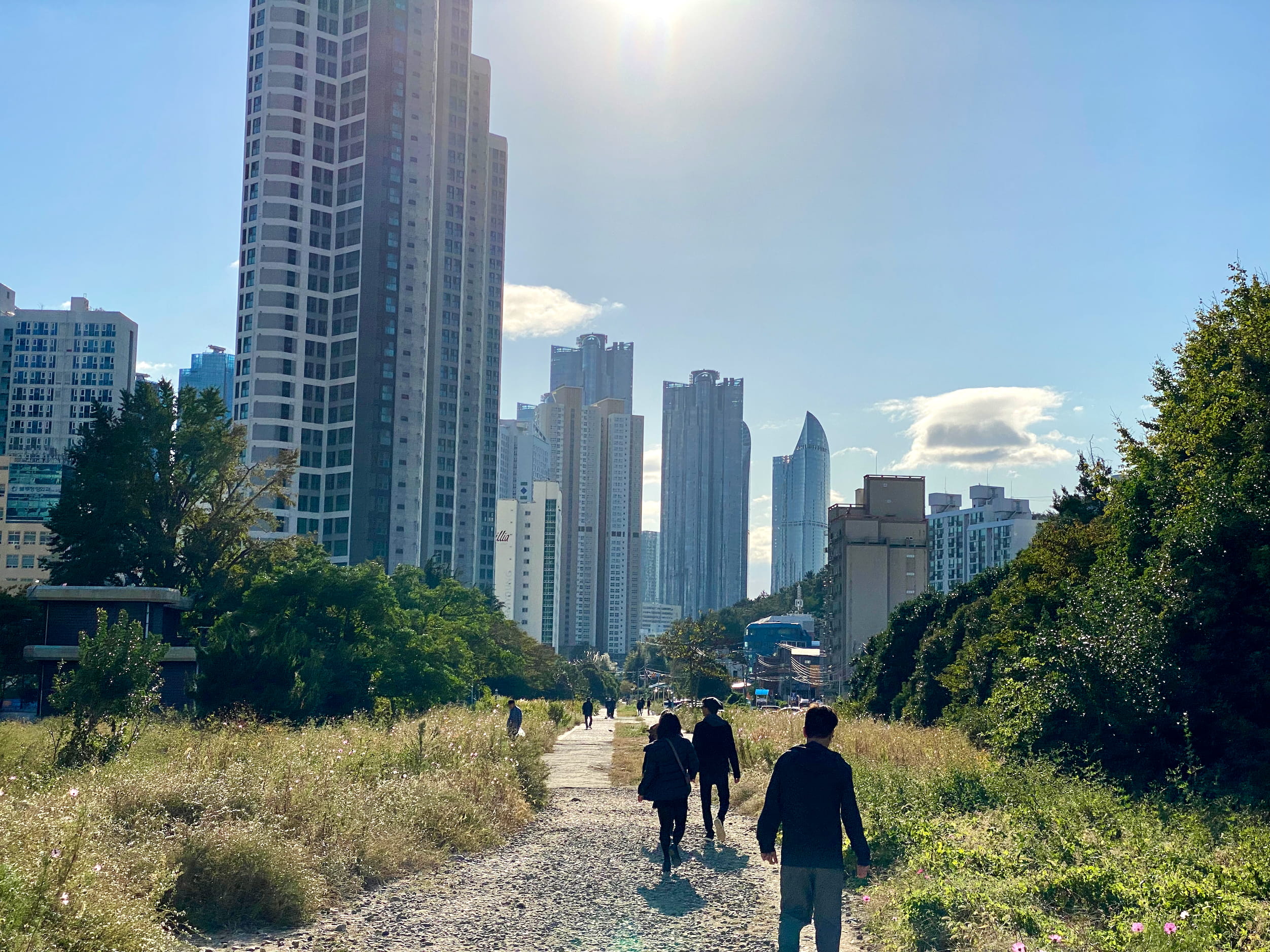
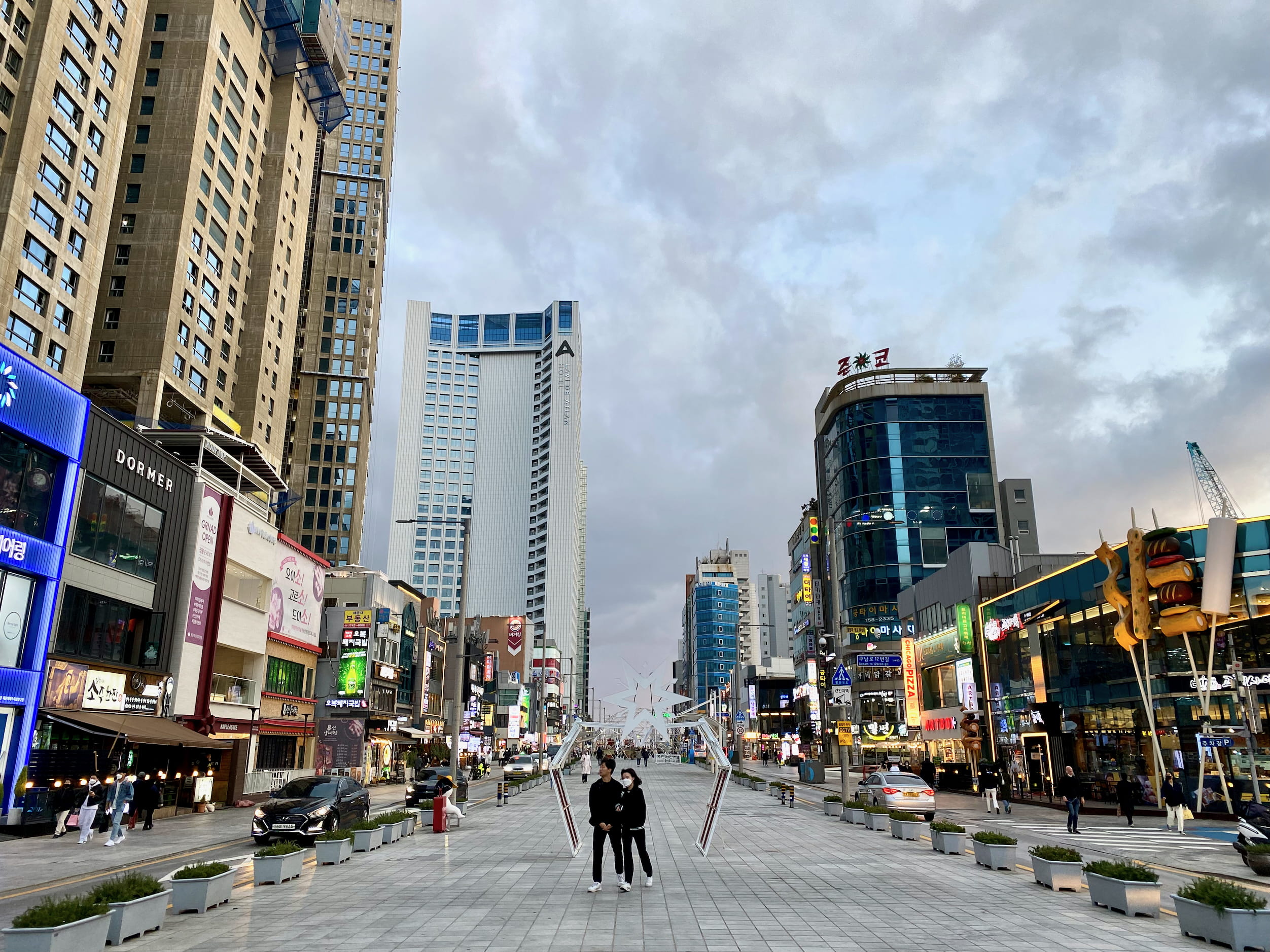
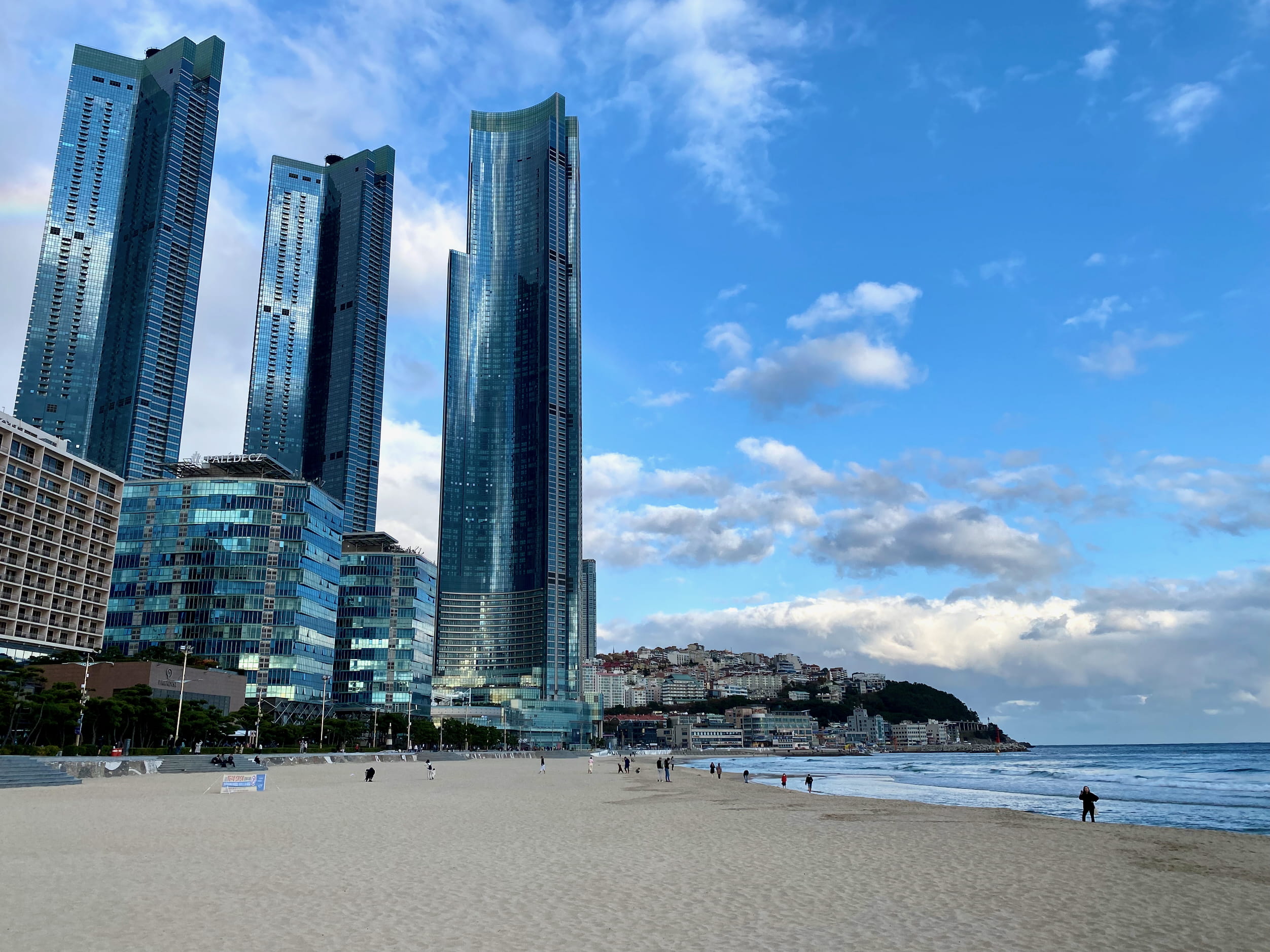
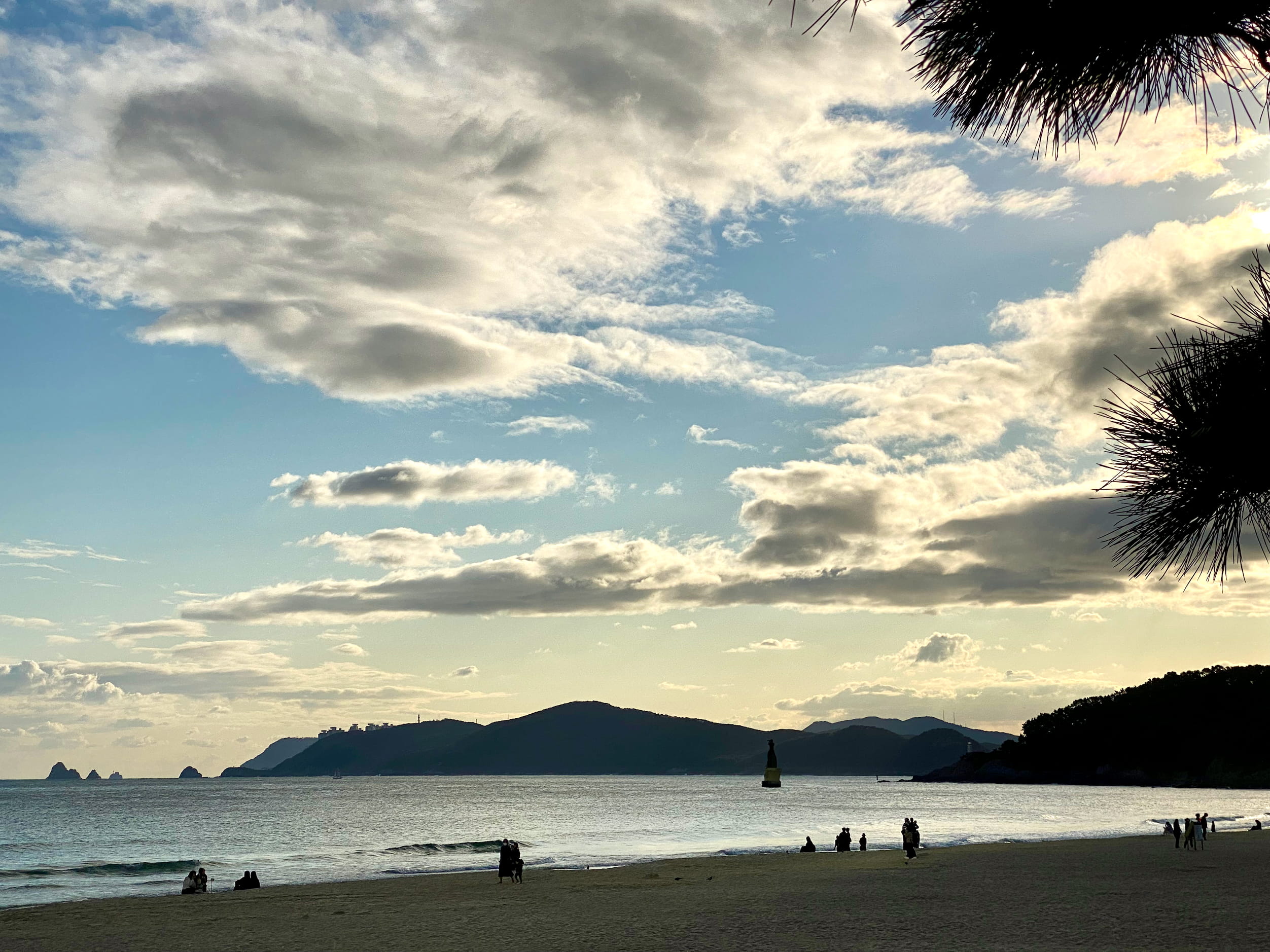
Maybe the oddest part was an area right by the main train station. There’s, inexplicably, a sign that says Texas Street, which houses a bunch of Russian bars and restaurants?
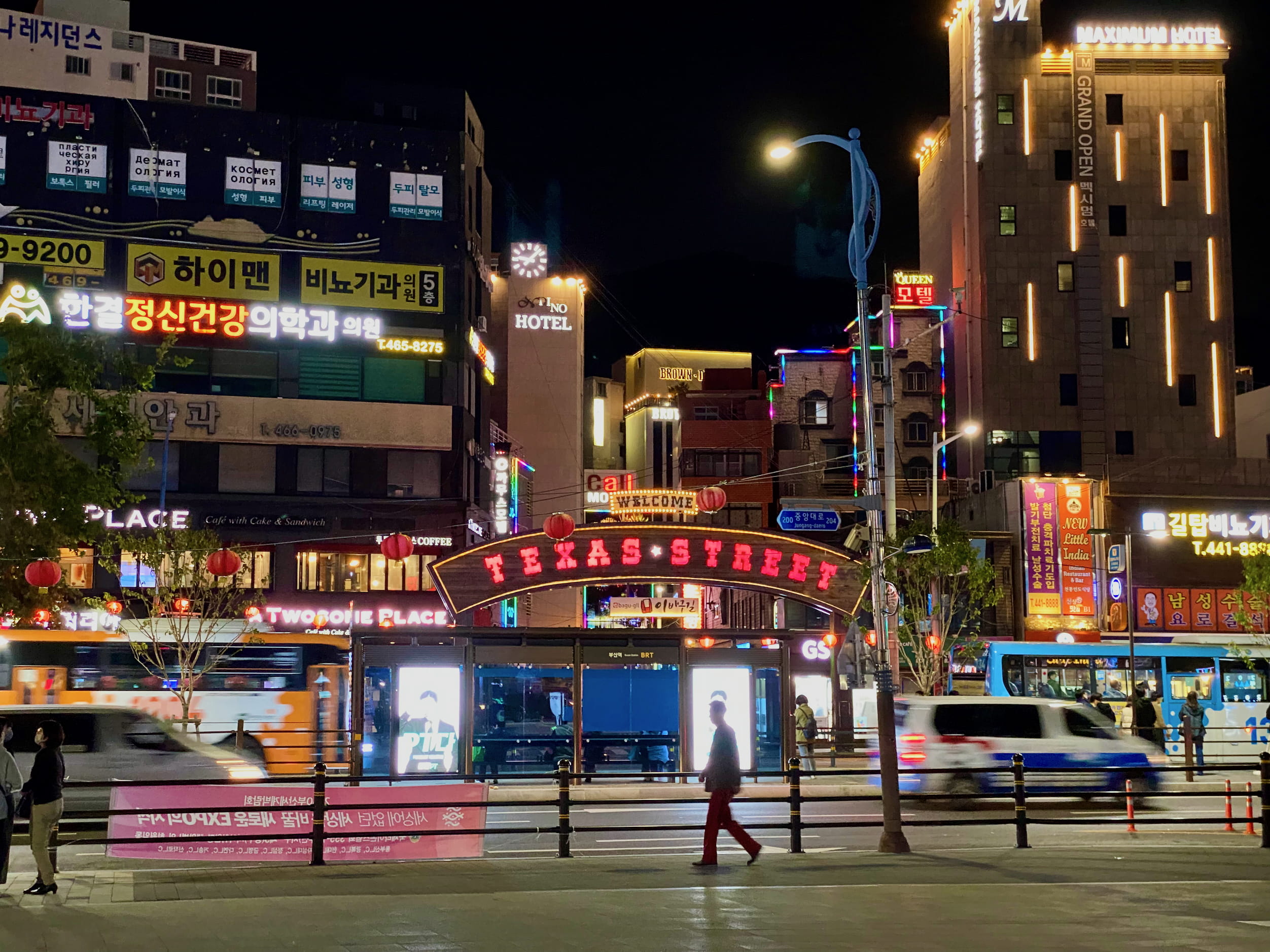
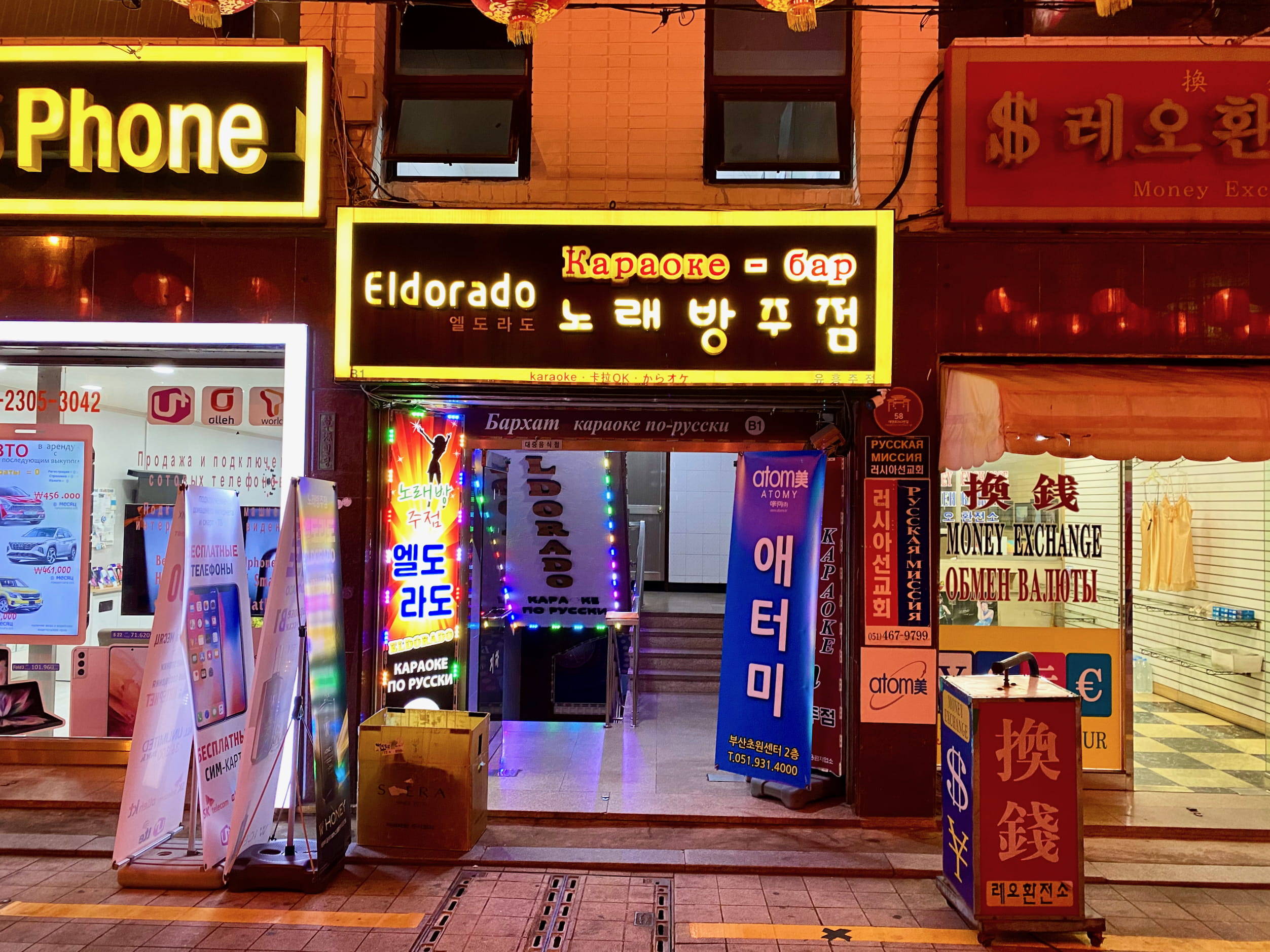
So that’s weird.
When I came to Busan for the first time, in 2015, I didn’t really get it. What do you do here? I had wandered barren streets without sidewalks, passed stores without prices, dodged mopeds making deliveries. It had felt like the (lack of) infrastructure familiar to travelers of Southeast Asia, but without the restaurants and activities catering to tourists.
I’m glad I came back. Primed by several weeks in Seoul, and guided by friends with past visits under their belt, I got to understand the slightly grittier, more sprawling appeal of Busan.
We spent most of our time wandering around the city’s packed alleys and street markets.
While Seoul had street food, in Busan it felt core to the city experience. Squatting around a Pocha;05 lining up for molten sugar/nut/spice-filled Hotteok; sliding past shop after shop, each with a dozen water tanks, each tank full of live critters06 awaiting their demise.
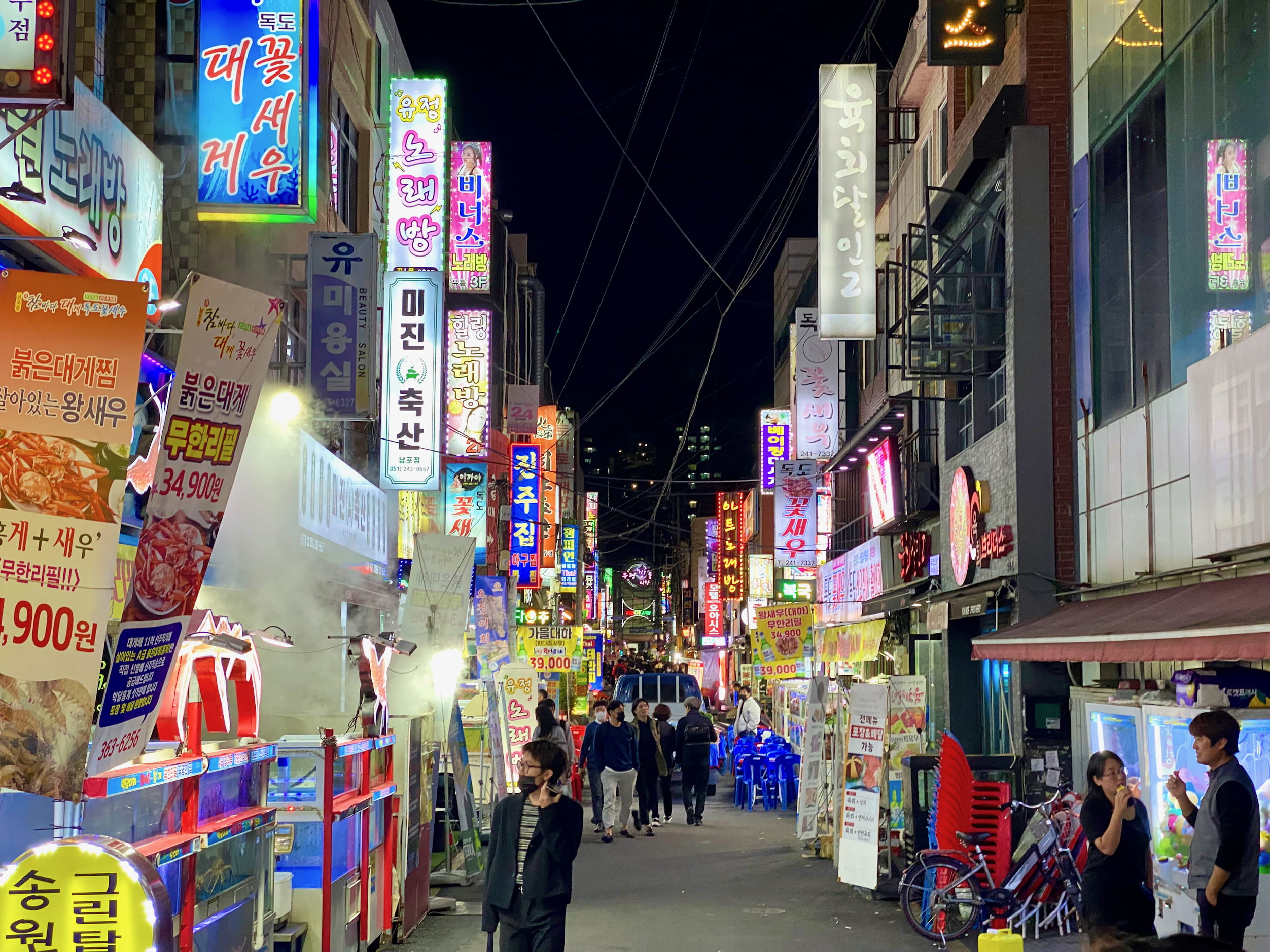
Fish, Stew, and Potions
Speaking of fresh aquarium fish, we stopped by a mackerel shop. To order, the man fished out a couple flapping friends, killed them, and expertly carved them up in just a few minutes.
I was apprehensive. Aren’t you supposed to flash freeze sushi? Something about potential parasites? I nervously googled advice as we walked to the beach, unsure of whether I should trust my gut to this suspicious treat.
Luckily, I just followed the guiding principle for having a swell time: make good friends, then do what they do. The fish was delicious, as good of sushi07 as I have ever eaten. Mackerel is known to have a divisive flavor, but this was clean and smooth and light.
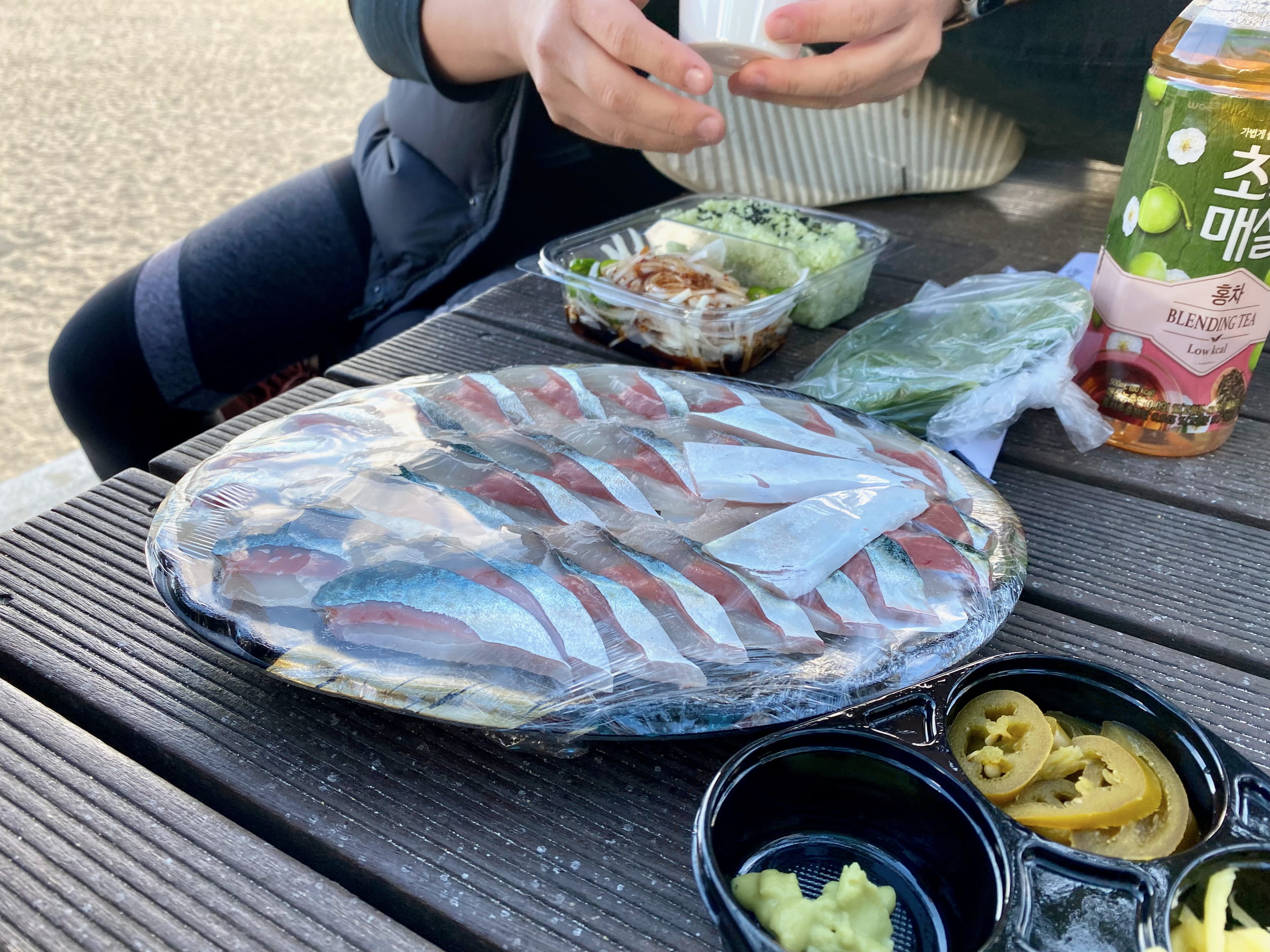
My experience with good raw fish is that it follows the same law that good vodka apparently has: if it tastes like the thing, then it’s bad. In other words, good sushi doesn’t taste “fishy.” It’s more like… “buttery” is the word that always comes to mind.
I had become obsessed with something I glimpsed walking by a restaurant: a big pot full of all kinds of things, plus noodles dumped in. I spent days talking about it. I wanted to find it. It turns out this is called Army Stew, invented after the Korean War to incorporate military surplus stuff like Spam and ham. It had the fun of hot pot without all the decision-making, plus infinite free noodles. What’s not to love?
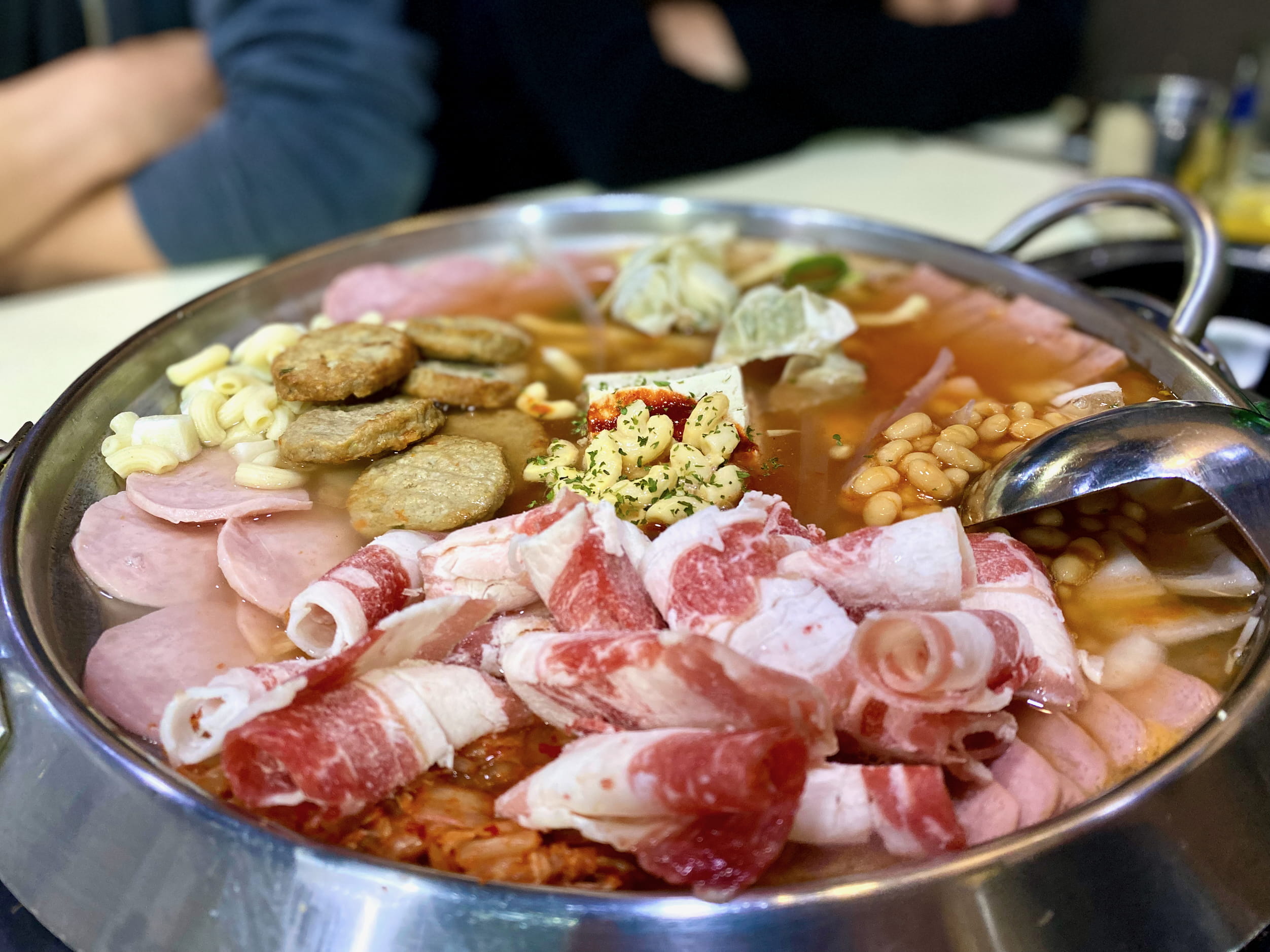
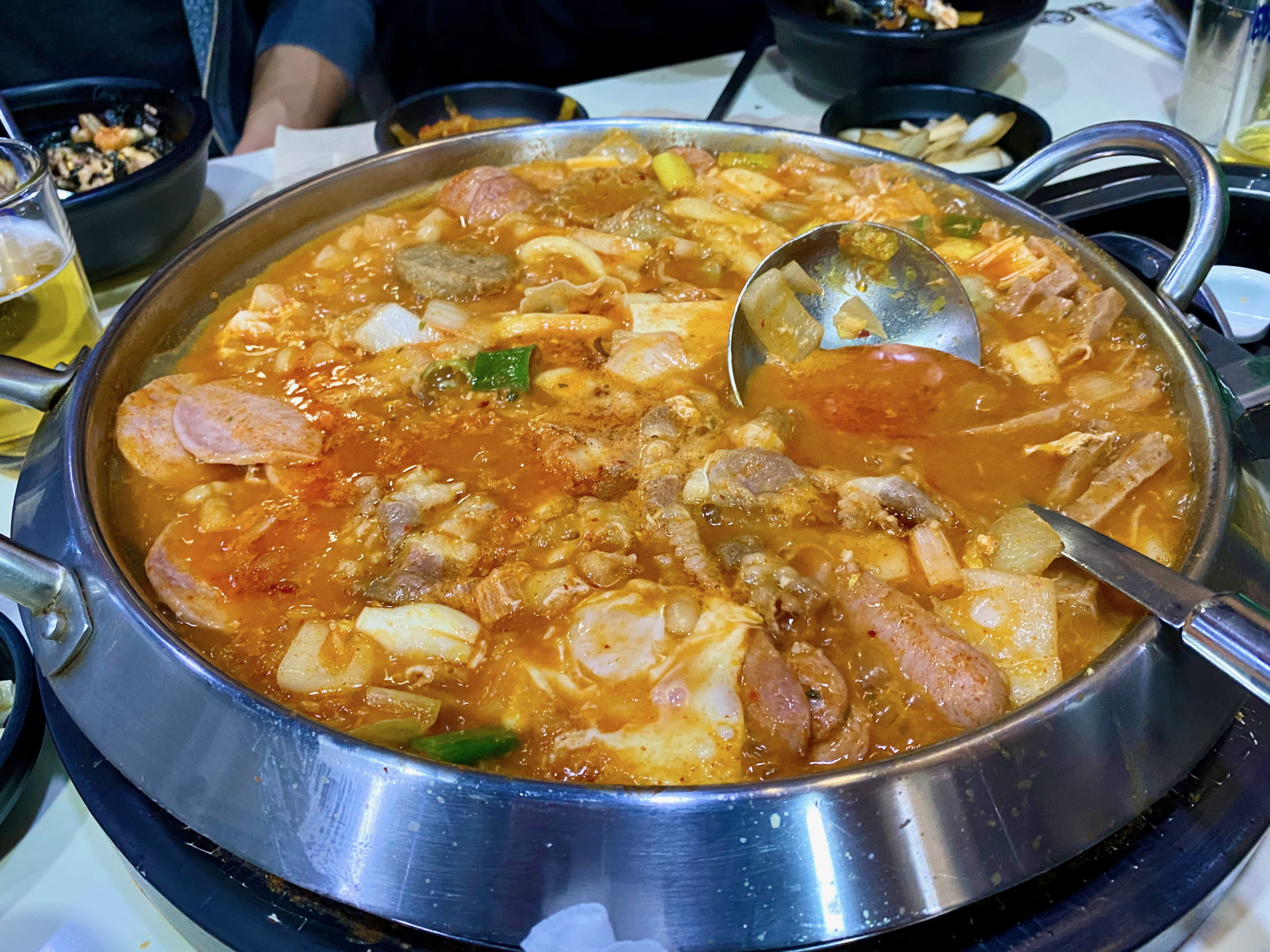
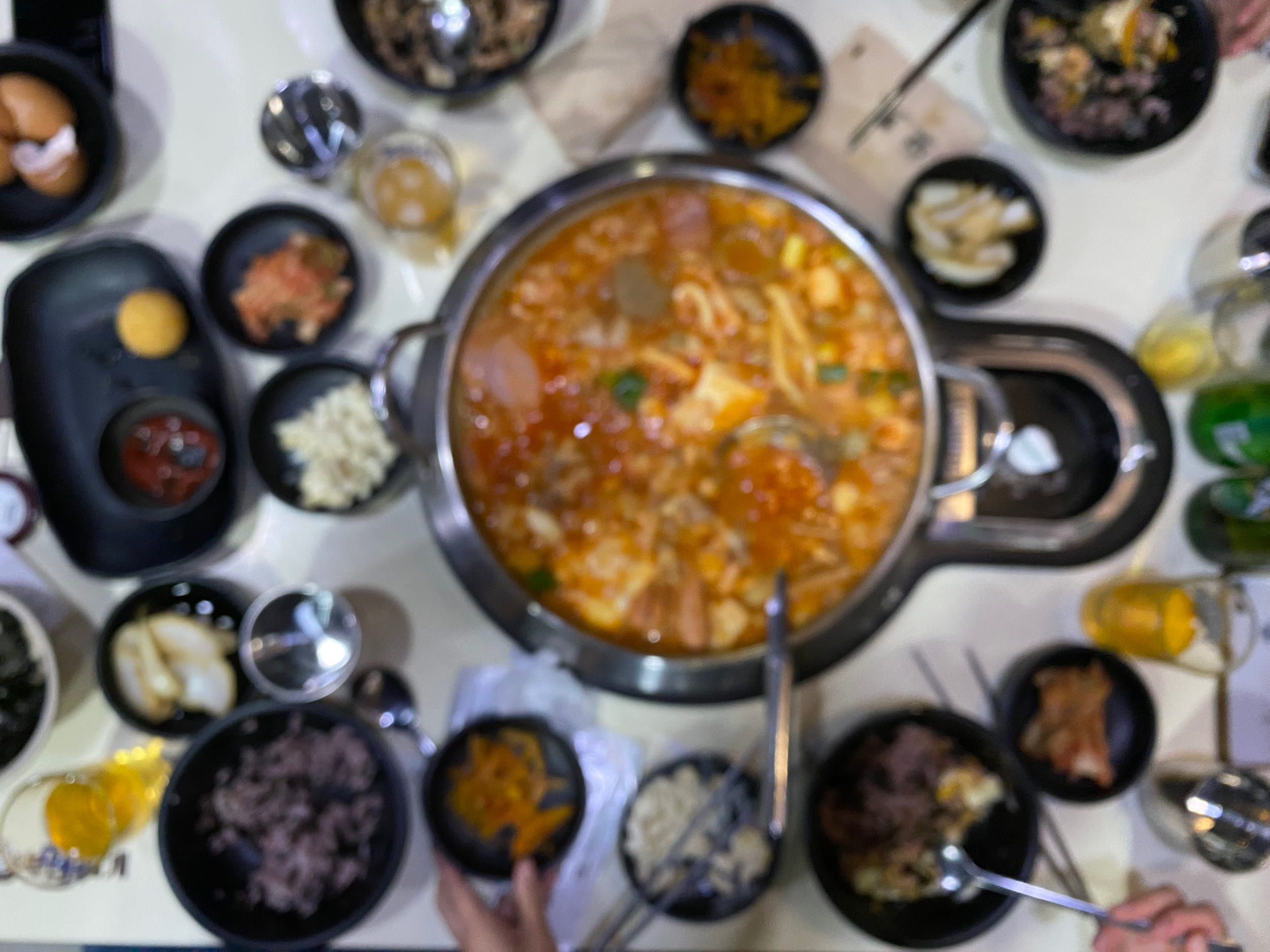
Top: before. Next image: after. Final image: something I should start calling “the banchan blur:” the delight of having a million little tastes around you to mix and match at will.
We had heard rumors of some kind of drink that’s supposed to help with, well, drinking. The convenience store sells them. We tried to get Google Translate to help us figure out whether you are supposed to take them before, during, or after you imbibe semi-responsibly.
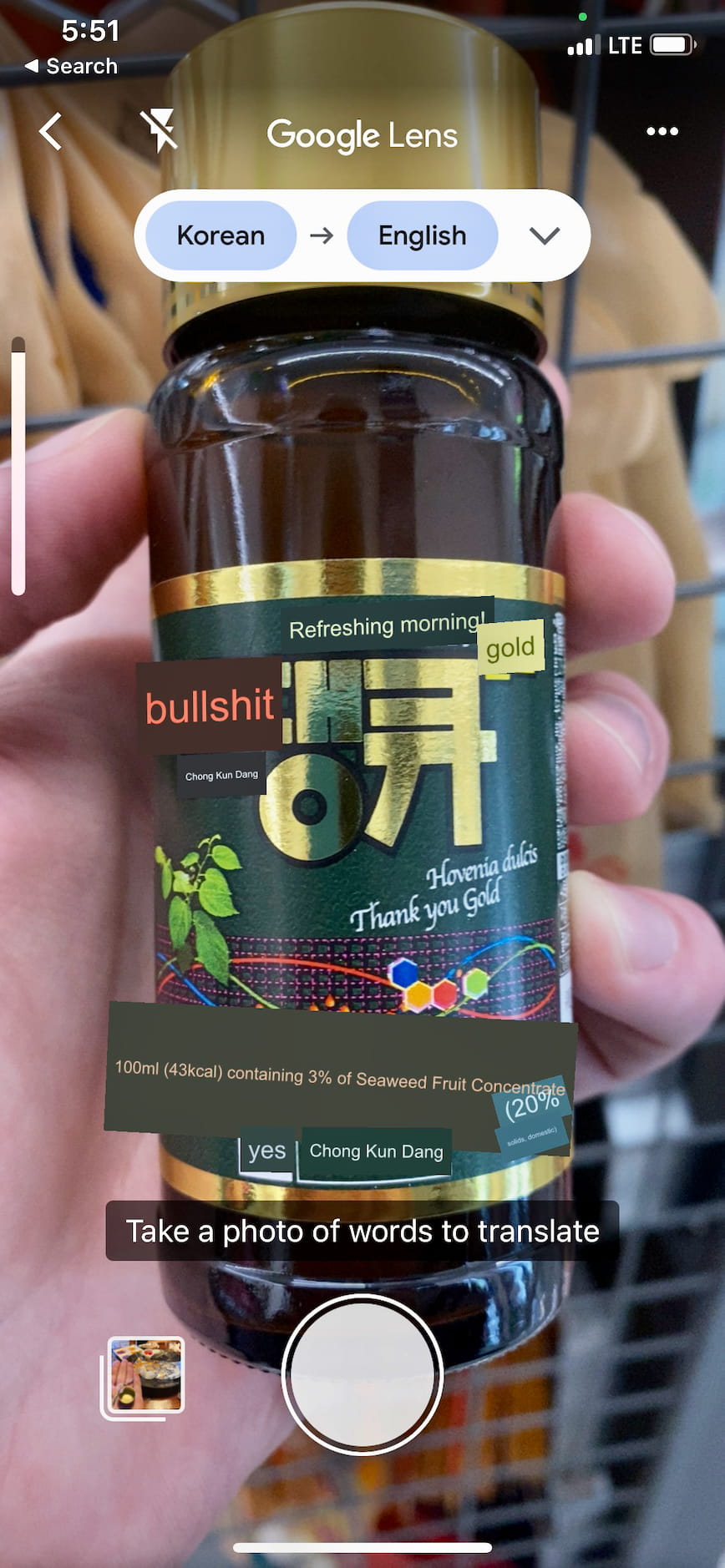
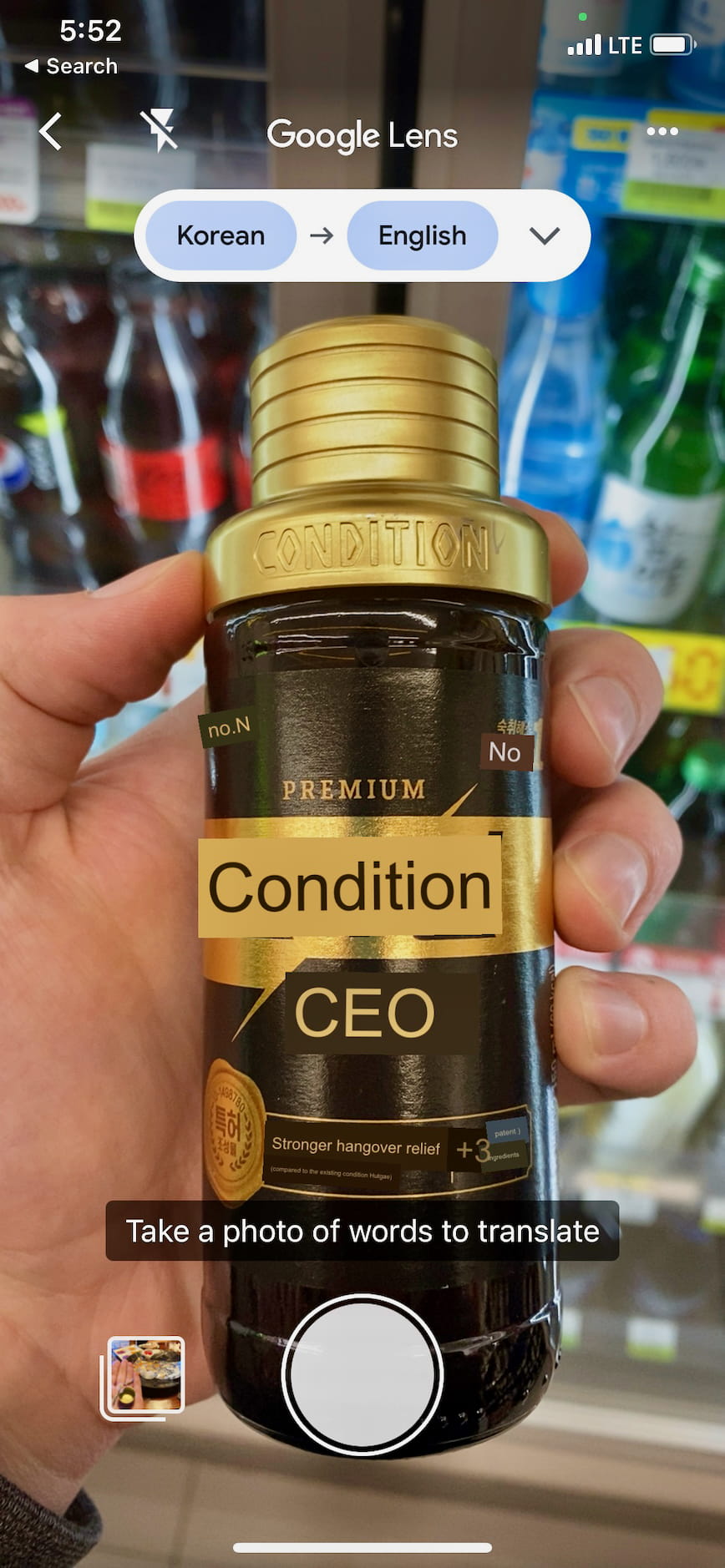
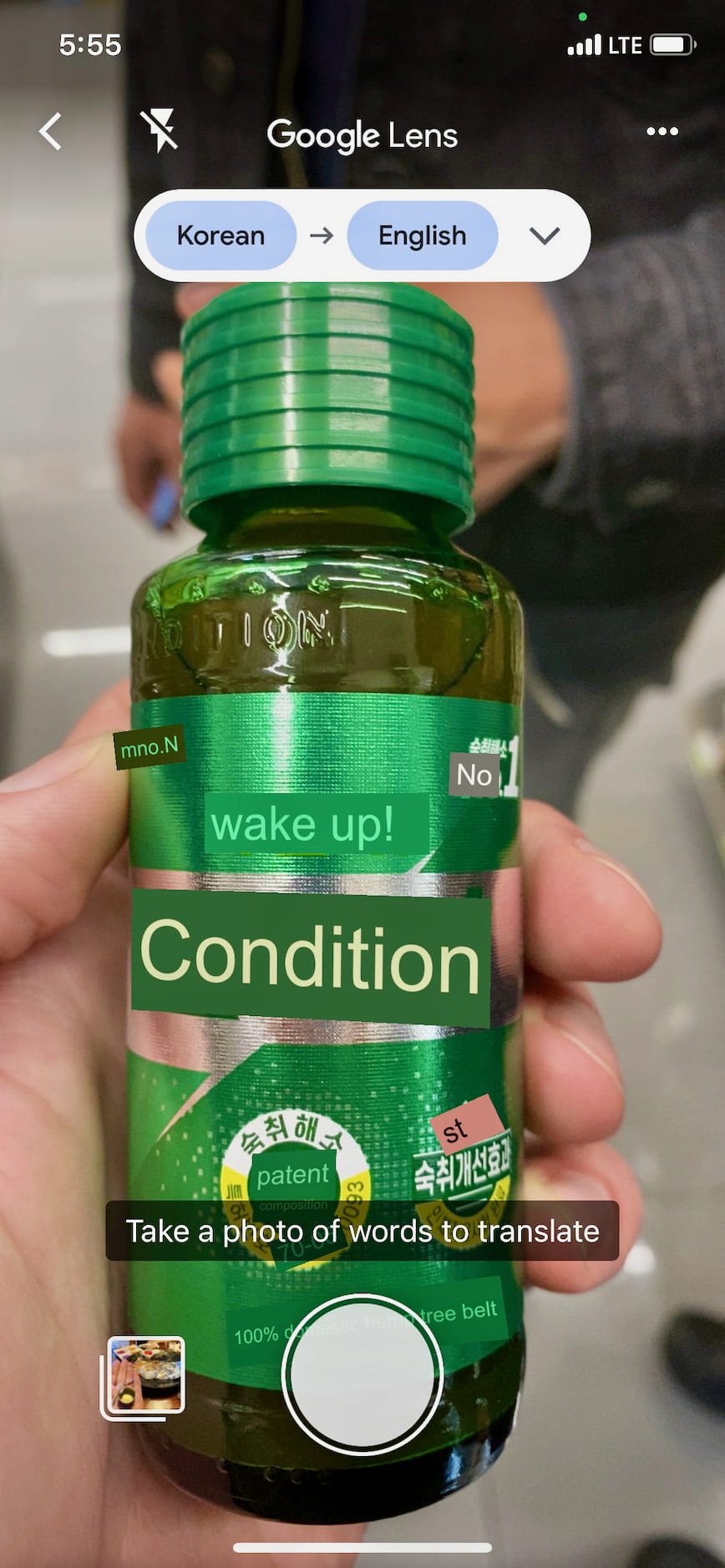
As is often the case, Google Translate was accidentally entertaining rather than helpful. We bought some at random and drank them anyway. Did it help? No idea.
If you dig a little bit, Busan has all kinds of liquid delights. There’s the aforementioned Pocha, around which one slings soju according to a series of intricate rules. There’s Thursday Party, which I still vouch for despite every fiber of my being telling me I shouldn’t. Their beer is somehow so cold a bunch of it becomes ice. And there are craft beer bars, perfect for fulfilling the Seattle-born craving for I can’t believe it’s not orange juice hazy I(I)(I)PAs.
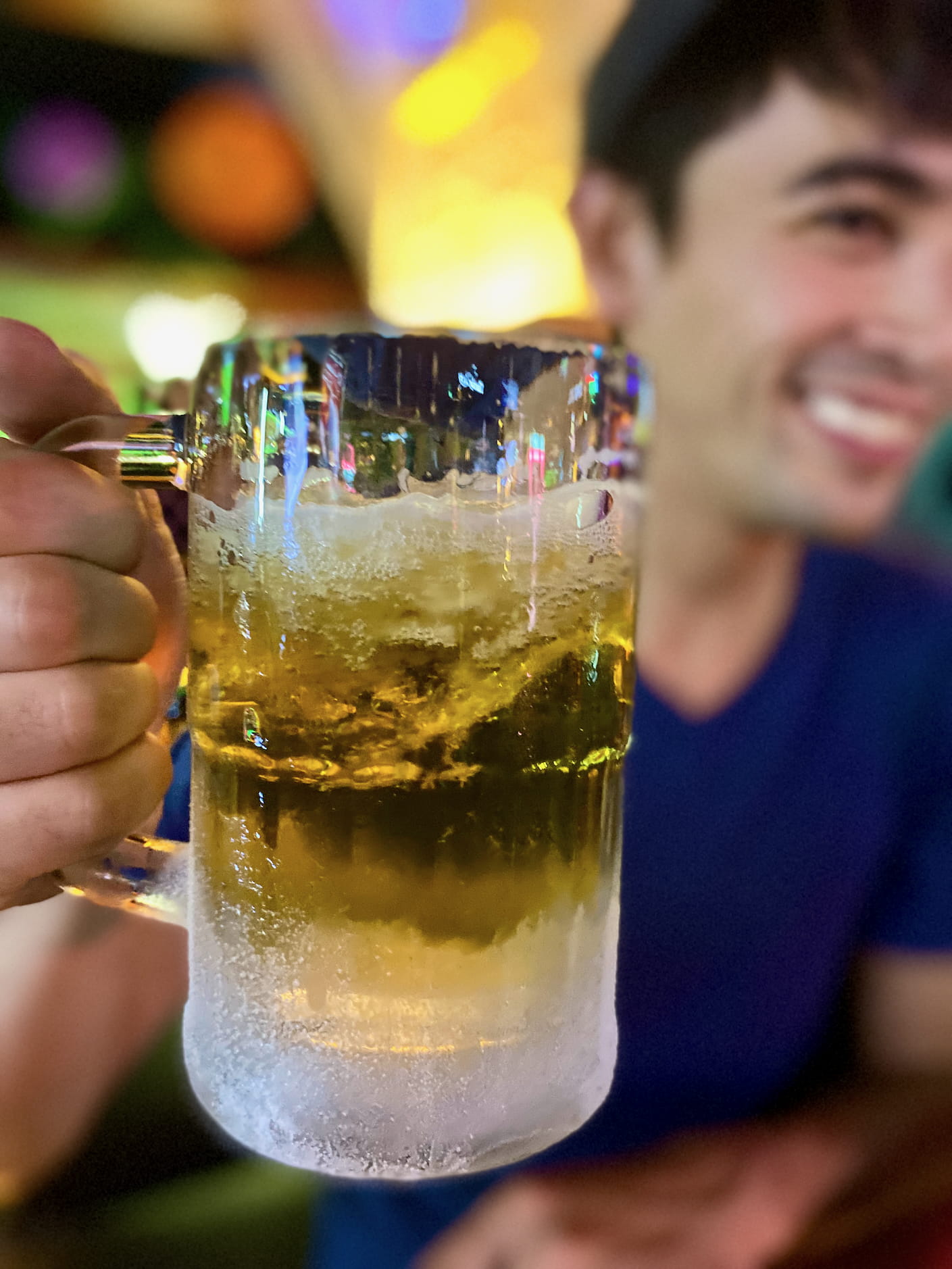
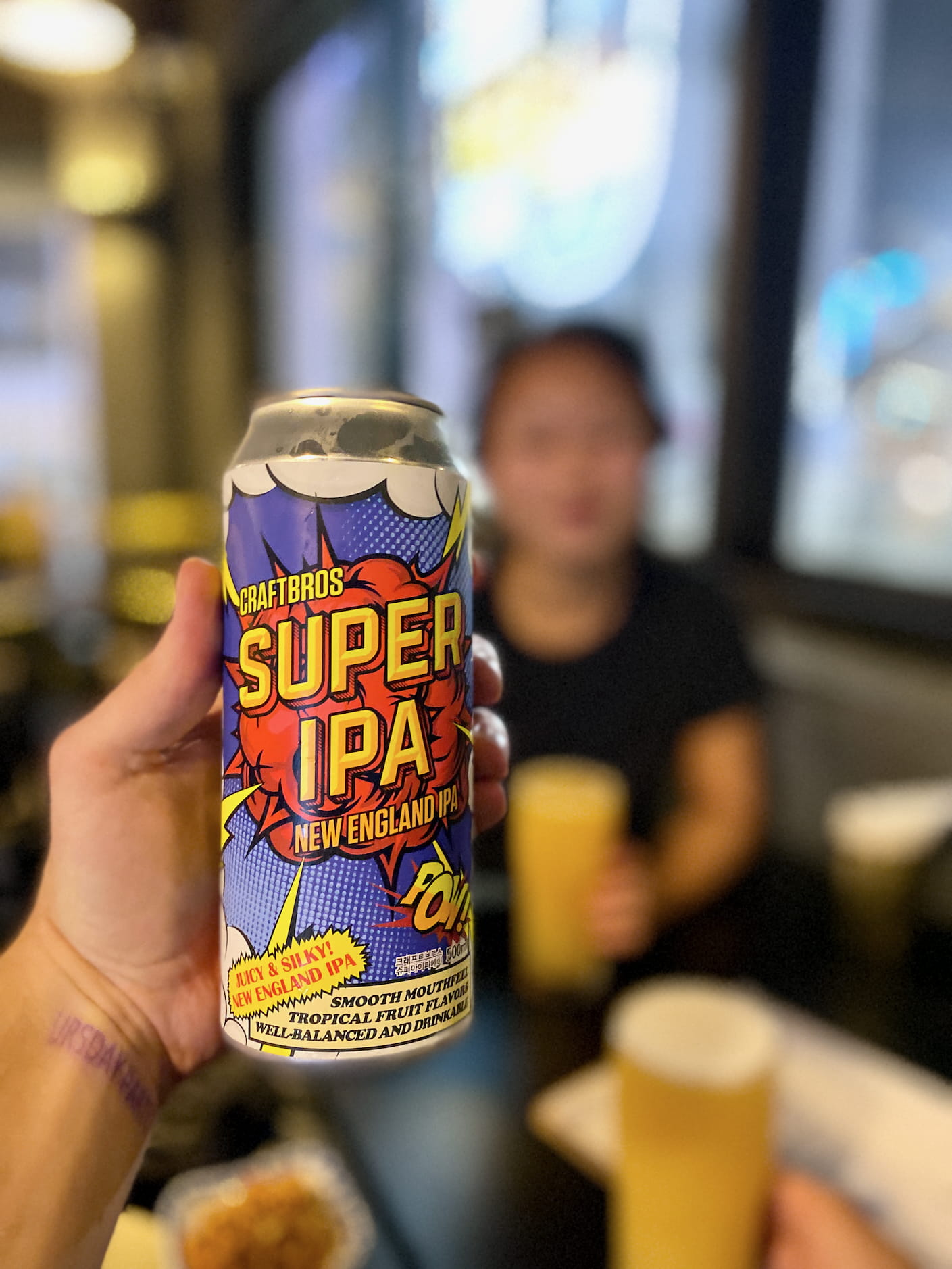
I never, until this moment, understood why crappy American beers advertised how cold they were. As in, your beer is so bad that the best quality you can think of is its temperature? But now, three rounds deep of throwing darts so badly in Thursday Party that we only had a single (dart) left with the tip intact, taking a sip of a draught of Hite or Kloud or Cass that was so chilled it was partially solid, I got it. Really cold beer delights. Maybe it’s cold enough to numb away the final remnants of the flavor of light beer?
Finally, there’s a big hunk of meat in here but I can’t remember anything else so mostly I just wanted to include this final stew because it looks crazy as hell.
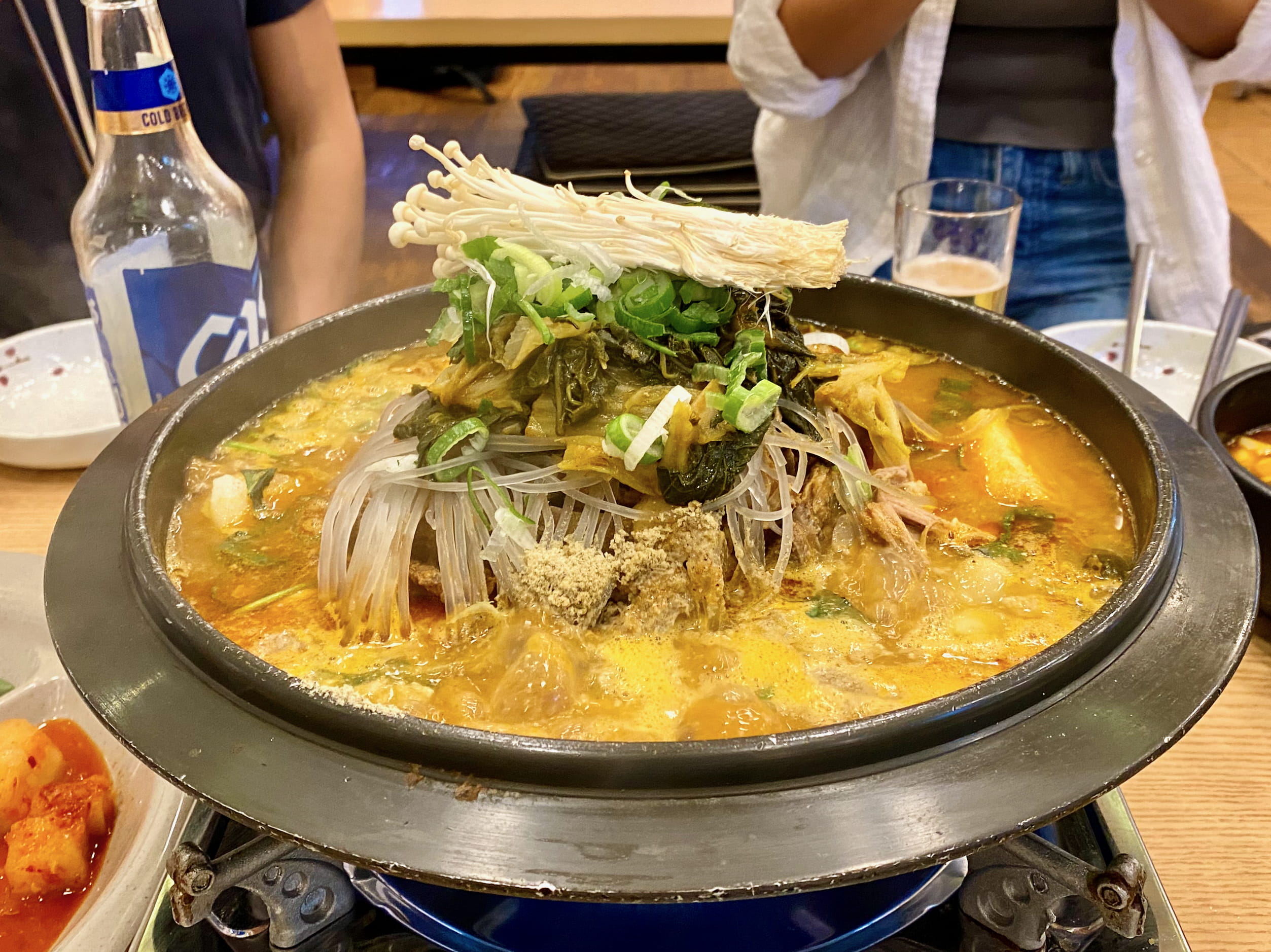
Misc
I’m back to leaving all the weird stuff at the end, so enjoy.
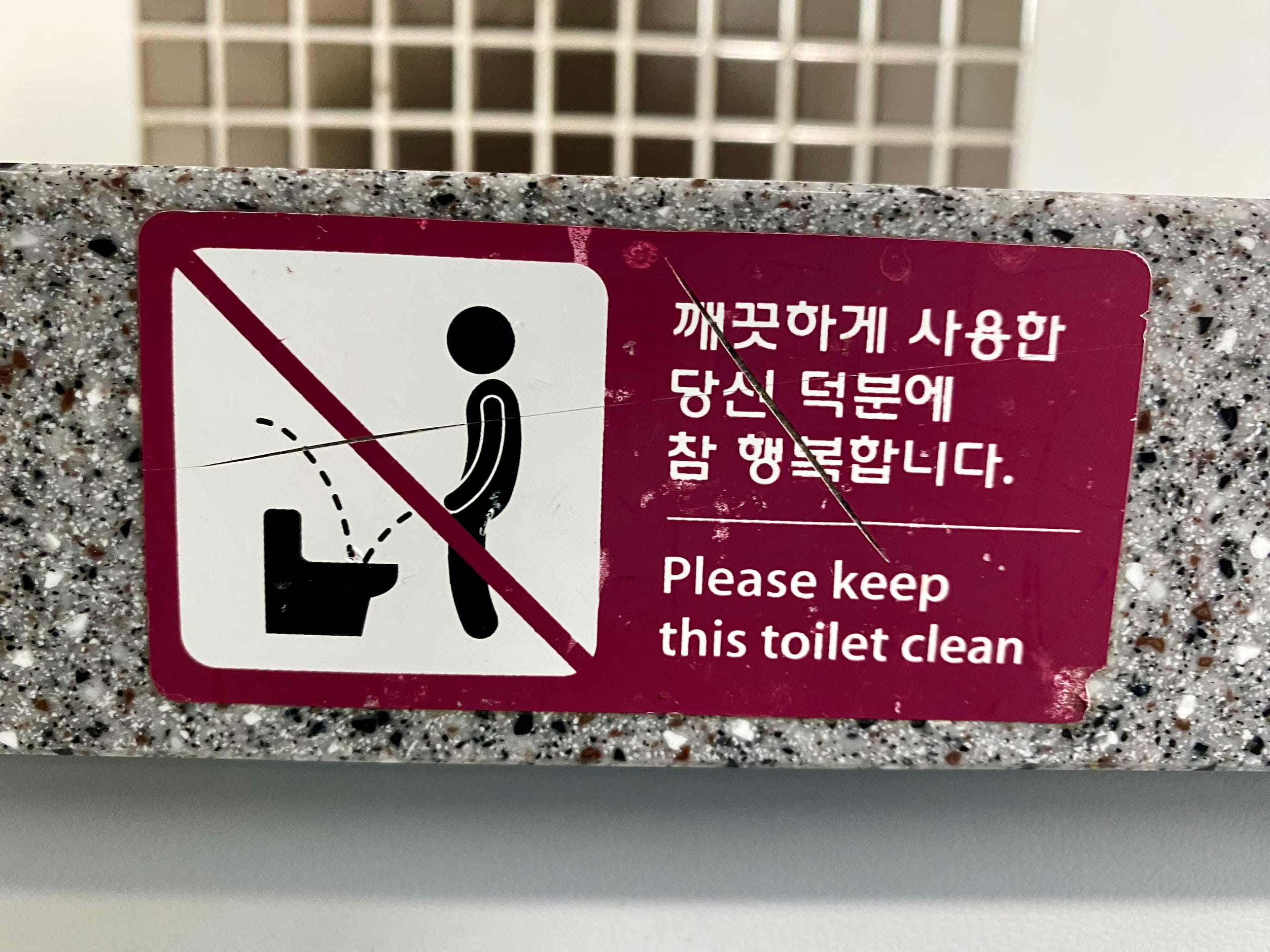
While I understand what the goal is, I don’t get what is possibly happening in the diagram. Like in terms of physics.
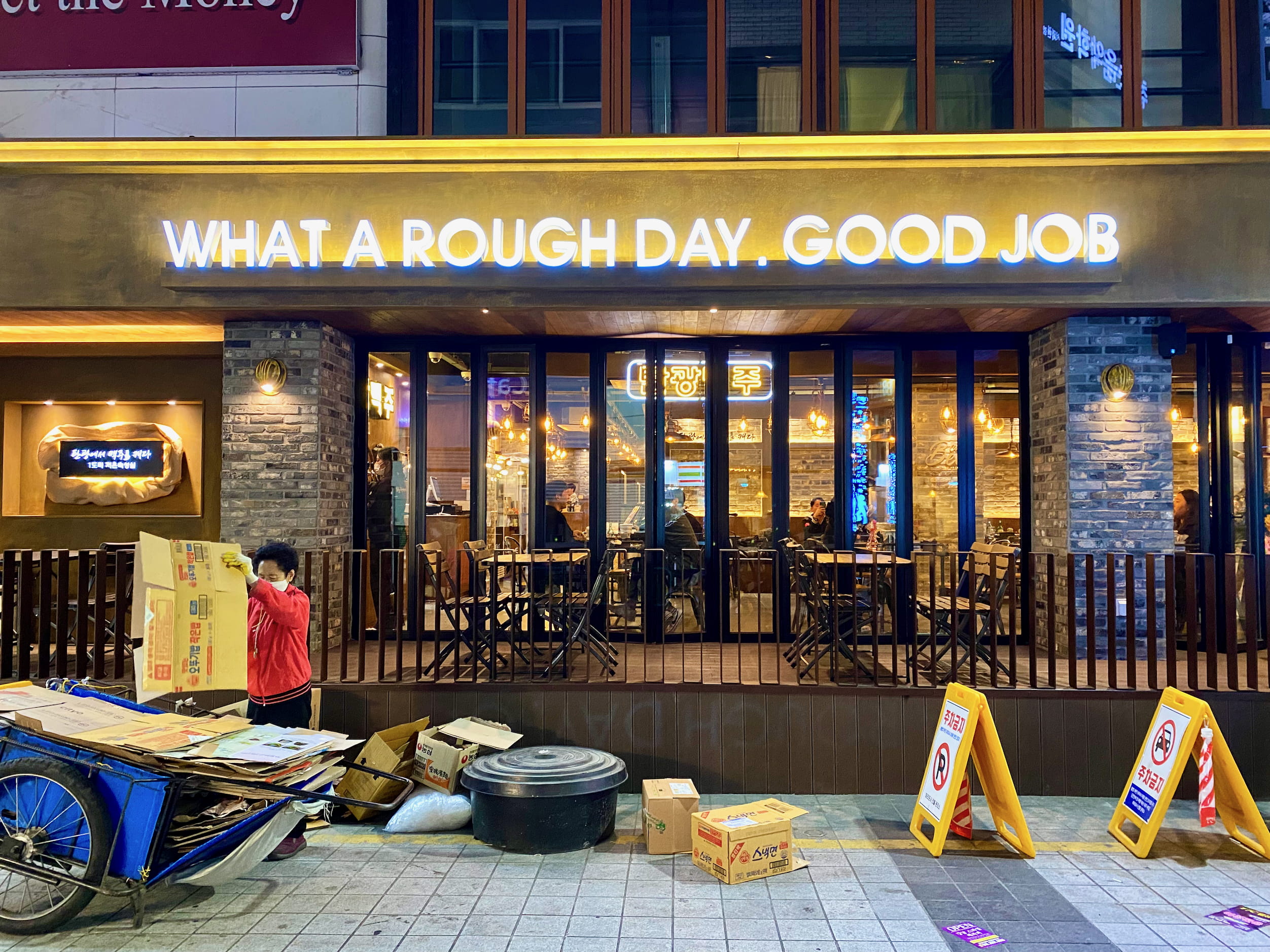
Somehow that this sign exists along makes me happy
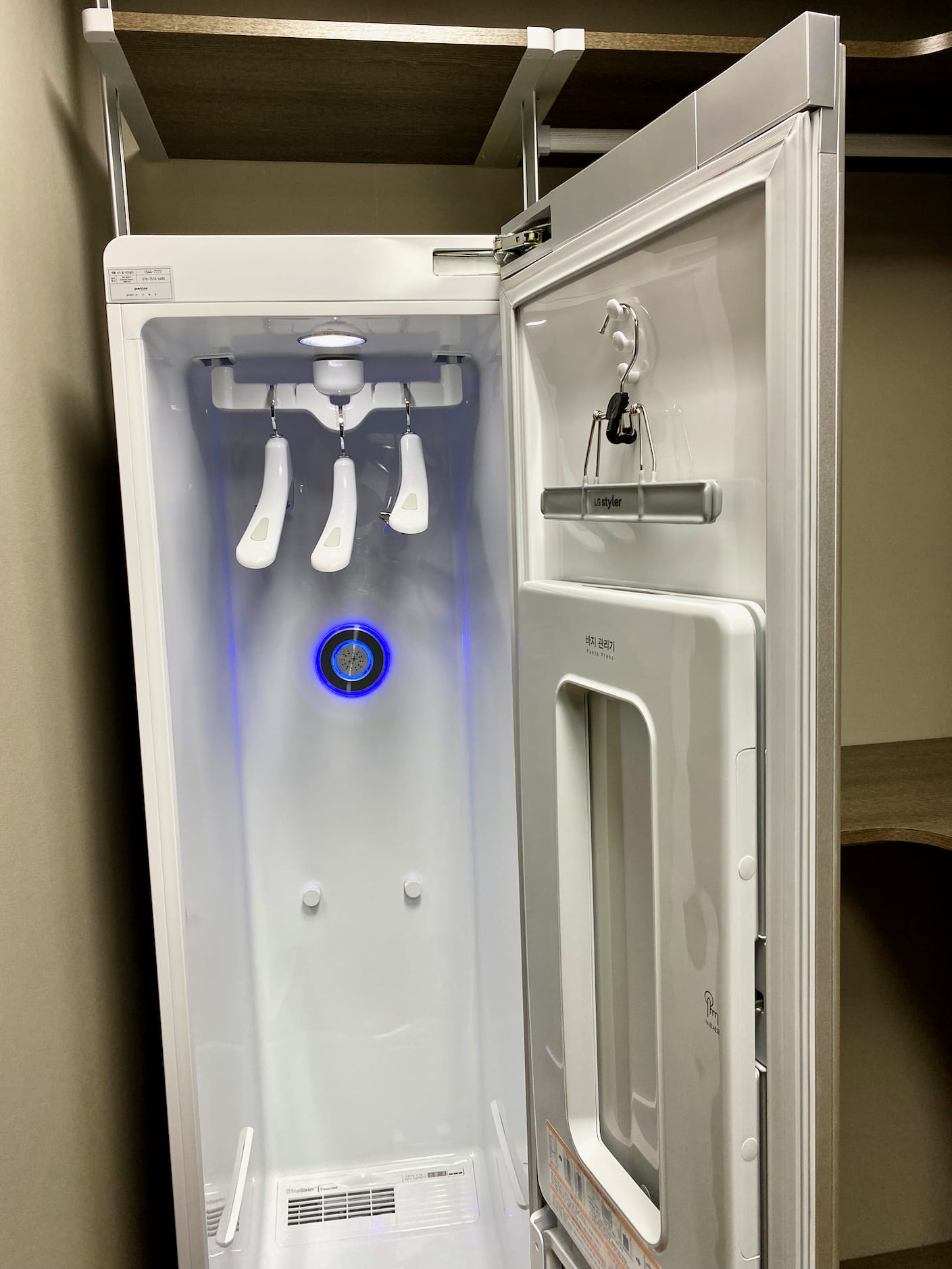
If you missed it, I described in the Seoul post how high tech some of these apartments were. The one we stayed at in Busan had, for some reason, the LG Styler, which I believe de-wrinkles your suits and presses your pants? The apartment also had at least six control panels with seemingly overlapping functionality, which we never completely figured out despite fiddling with them for days.
Parting Thoughts
I can see the draw for both Seoul and Busan. Each feels like of course you would prefer that one, depending on your values.
Seoul has everything you could want. But in turn, everything is hyper developed, and everyone but the rich lives in tiny boxes. Busan feels full of potential—that new opportunities await, freedom somehow afforded by the geography. But it also carries the twinge of oldness and slowness that comes with a town that’s always playing second fiddle.
Now, we board an extraordinarily cheap domestic flight down to Jeju island.
Footnotes
I.e., according to me reading the Internet for a couple minutes. ↩︎
English actually has this problem on its own. It’s one of the few (in my experience) languages that you can’t pronounce by reading even in its native script. Many vowel sounds are written with the letter “a”—for example, every single one in this sentence is different! (Using IPA: ɛ in “many,” ɑ in “are,” eɪ in “a,” æ in “example,” and ə in “alone.”) Speakers of other languages find it both hilarious and horrifying that we have these things called spelling bees: competitions to write our own language correctly. ↩︎
Technically I mean “in the middle of how most foreign speakers would say ‘b’ or ‘p.’” ↩︎
Pocha apparently literally means covered wagon, which is extremely accurate. I remember their plastic flap perimeters, and mobile grills with shockingly extensive fried menus. ↩︎
Lots of eels. ↩︎
I think maybe this is supposed to be called sashimi since it’s just slices of raw fish. Whatever. ↩︎
